
Should I Repair or Replace My Furnace?
During the winter heating season, your home’s furnace becomes an essential component of your comfort. If you are having problems with your furnace, you may be wondering, “Should I repair or replace my furnace?”. While it can make sense to repair your furnace, sometimes, depending on the cost it would amount to, it’s smarter to just replace it.
Many factors can help you decide whether you should repair or replace your furnace. An HVAC professional can also help guide you in your decision.
Signs that Your Furnace Needs to be Repaired or Replaced
If your furnace has begun producing strange sounds or if you observe that the sound it makes has changed, it could be an indication of a faulty motor.
In case your house’s temperatures seem more inconsistent, it may imply that your furnace is no longer supplying the same level of power as before. When the power diminishes, air cannot circulate efficiently through the ducts, causing the room to become noticeably colder.
Your furnace may not be able to keep up with the thermostat settings or it could be running for longer periods compared to earlier. This could mean that either the heat emitted is not as warm as it used to be, or the blower isn’t circulating air as efficiently as it once did.
Unusual smells can also be an indication of a failing motor. When motors start to deteriorate, they can emit an unpleasant burnt scent. Usually, when this happens, it’s a sign that the motor is deteriorating rapidly.
Prolonged inhalation of carbon monoxide can cause death. There are several indicators that your furnace might be releasing carbon monoxide. These evidences include:
- The flame of your furnace burner appears yellow instead of blue
- Excessive moisture on windows, walls, and other surfaces
- Rust formation on pipes
- Soot streaks surrounding the furnace
- The absence of an upward draft in the chimney
- Experiencing symptoms such as nausea, disorientation, headaches, and flu-like feelings
If you observe any of this evidence, it is imperative to evacuate your home immediately. Contact the fire department, inform your utility company to shut off the gas supply, and seek medical attention at the earliest opportunity.
If you’ve noticed an increase in your electricity or gas bill, it might be due to aging motors. As motors get older, they tend to draw slightly more current, resulting in decreased electrical efficiency.
More Serious and Frequent Repairs as one of the Reasons to Replace a Furnace
If you want to avoid wasting money on frequent repairs and maintenance of your old furnace, it’s time to face the fact that it’s not worth it anymore. Your furnace should be replaced if it’s over 15 years old and needs constant attention. If you keep repairing it and the costs are increasing, it’s a clear sign that it has reached its expected lifespan, and the future will only bring more severe and frequent problems.
Don’t waste your money on patching up an old, broken-down system. Instead, invest in a new one that will last you longer.
When dealing with severe or frequent repairs, you have two main options: repair or replace.
For minor maintenance issues like low airflow, water leaks, or thermostat repairs, repair may be the way to go. However, if you’re dealing with repeated repairs for a newer system, it’s important to get a second opinion before proceeding.
On the other hand, if you’re dealing with major repairs such as a damaged heat exchanger or control module, it’s usually best to replace your furnace entirely.
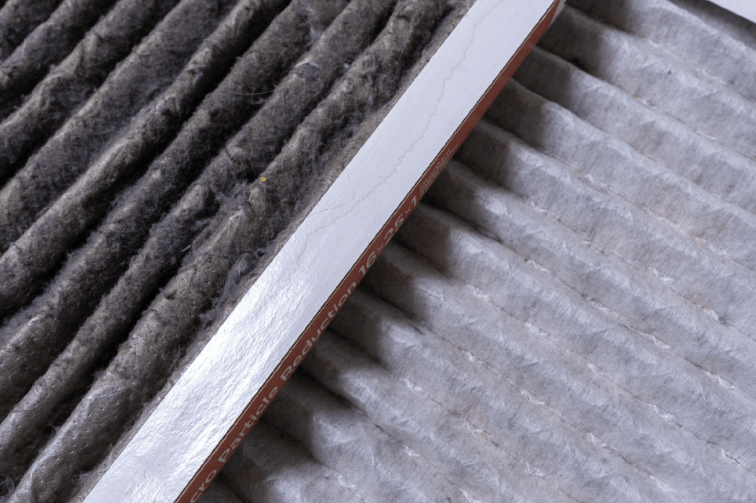
Additionally, if you have an old system that needs frequent maintenance, it’s a clear sign that it’s time to replace it. Don’t wait until it breaks down completely – be proactive and invest in a new system that will save you time, money, and headaches in the long run.
An HVAC professional will be able to accurately answer the question of whether you should repair or replace your furnace and save you money.
Benefits of Early Furnace Repair or Replacement
There are some potential advantages to repairing or replacing your system early:
- Additional research time. By opting to fix or replace your system before the winter arrives, you will have more time to conduct thorough research on your available options. This will enable you to compare different units and obtain estimates from various sources.
- Cost savings. During the summer months, when demand is lower, you may be able to save money on both parts and labor if you repair or replace your furnace. This is in contrast to the high-demand seasons when prices tend to increase.
- Increased time for budget planning. A furnace is a significant investment for your home. By addressing repairs or replacements early, you grant yourself an extended period to explore financing options that are more financially feasible for you.
By learning about these benefits, it will be easier for you to answer the question of whether you should repair or replace your furnace.
When to Repair Your Furnace?
In most cases, issues with your furnace can be easily identified and repaired by your HVAC professional; especially for a new furnace (meaning less than 10 years of system life).
Usually, as long as your furnace is successfully heating your home and you’re not seeing a steady increase in your heating bills, then it’s in your best interest to repair it and your furnace is considered operationally sound.
Regarding furnace repairs, a useful guideline is to consider whether the repair costs amount to less than one-third of the price of a new heating system. Additionally, if your furnace is still within the first half of its expected lifespan, it is usually more sensible to opt for repairs.
Even if you are noticing a decline in heating efficiency, there are alternative options worth exploring before contemplating a furnace replacement.
Get your HVAC specialist to inspect your heating system, because sometimes, upgrading your thermostat or checking the integrity of your ductwork could boost the efficiency of your furnace.
When to Replace Your Furnace?
One instance where there is no question about whether to repair or replace your furnace is if it is emitting carbon monoxide. If a crack appears in the combustion chamber, the furnace must be replaced without delay. Immediate replacement is necessary to ensure the well-being of you and your household.
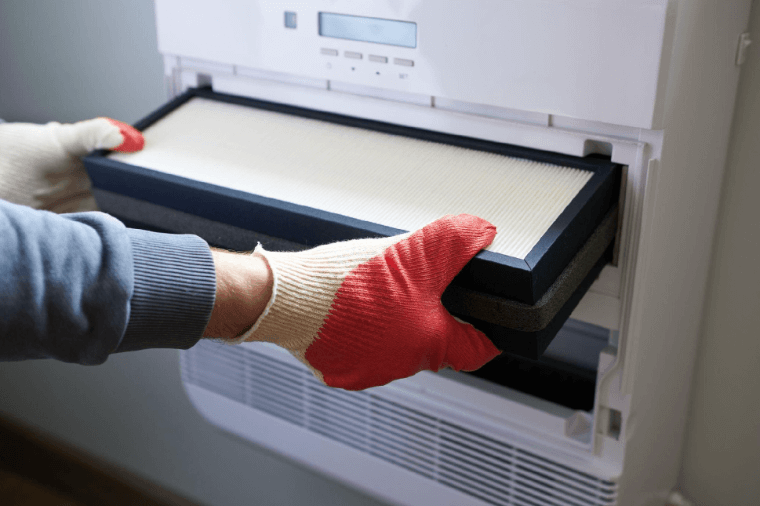
When It’s Hard to Decide, Follow These Guidelines!
If the system is less than 15 years old, it’s often best to have it repaired rather than install a new one. Any system over 15 years old is prone to frequent and expensive repairs so it’s better to replace it.
When the repairs needed amount to less than 50% of the replacement cost, then it’s more cost-efficient to repair it, as opposed to a furnace over three-quarters of its life expectancy and approaching one-third of the cost of replacement.
Also, repair if your furnace needs minor maintenance such as low airflow, water leaks, or thermostat repairs, and get a second opinion for repeated repairs of a newer system. For major repairs such as a damaged heat exchanger or control module, replace your system.
Finally, something else to consider is if you’re thinking about selling your home in the next few years. If real estate values are low in your region, it may be more economical to make simple repairs that allow your system to function and pass inspection for the remainder of your time in your current home; however, an outdated system should be replaced to pass inspection and satisfy buyers.
It’s crucial to keep in mind that replacing your older, less efficient heating and air conditioning equipment with new high-efficiency models could potentially save you a significant amount of money. Therefore, it’s highly recommended that you factor this consideration into your decision-making process.
At the end of the day, repairing or replacing your heating system is a decision that only you can make based on your financial, comfort, and environmental needs. You can also count on the help of your HVAC professional! You can ask him about whether you should repair or replace your furnace and other questions and get answers.
Contact Mcmillin Air For Your Furnace Repair and Maintenance Needs
One of the hardest parts of furnace repair is finding a professional you can trust. If you own a home in Arizona, our company is ready to help you with your furnace repair needs.
Whatever you need, contact McMillin Air at 623-432-5202 to make an informed decision about your furnace heating and oil heating needs.

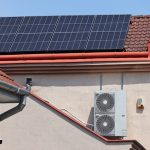
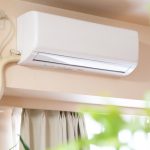
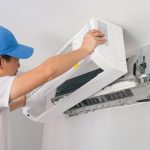
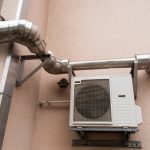
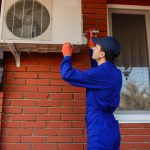


0 comments